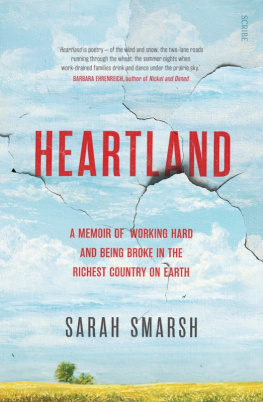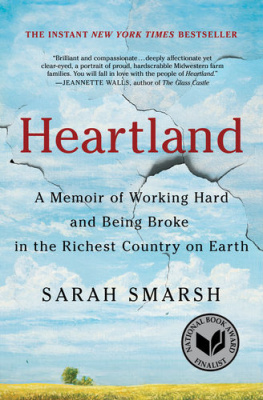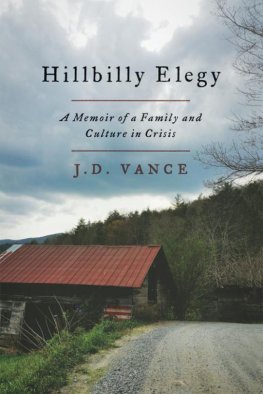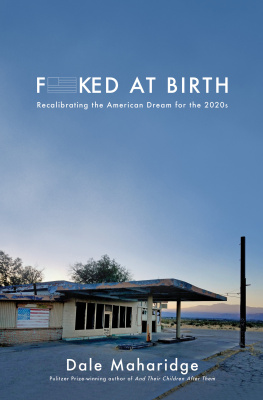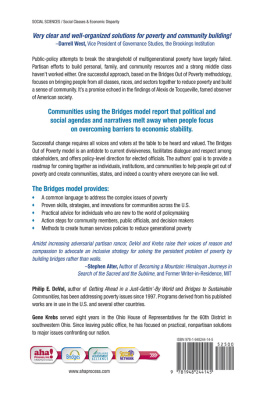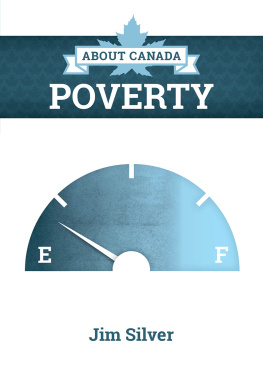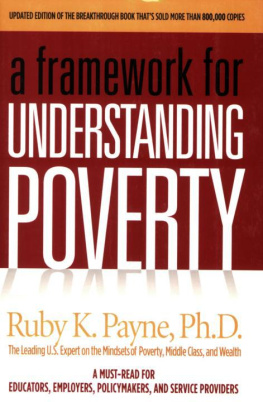
HEARTLAND
Sarah Smarsh has covered socioeconomic class, politics, and public policy for The Guardian , The New York Times, NewYorker.com, Harpers.org, The Texas Observer , and many others. She recently was a Joan Shorenstein Fellow at Harvard Universitys Kennedy School of Government. A former professor of non-fiction writing, Smarsh is a frequent speaker on economic inequality and related media narratives. She lives in Kansas. Heartland is her first book.
Scribe Publications
1820 Edward St, Brunswick, Victoria 3056, Australia
2 John St, Clerkenwell, London, WC1N 2ES, United Kingdom
Published by Scribe 2018
Copyright Sarah Smarsh 2018
All rights reserved. Without limiting the rights under copyright reserved above, no part of this publication may be reproduced, stored in or introduced into a retrieval system, or transmitted, in any form or by any means (electronic, mechanical, photocopying, recording or otherwise) without the prior written permission of the publishers of this book.
The moral rights of the author have been asserted.
Portions of the work herein have appeared in different form in the following publications: Flint Hills Review (The Firecracker Stand, Issue 16, 2011), The Common (Death of the Farm Family, Issue 8, 2014), and Longreads (The Case for More Female Cops, 2016).
9781925713633 (Australian edition)
9781911617730 (UK edition)
9781925693393 (e-book)
CiP records for this title are available from the National Library of Australia and the British Library
scribepublications.com.au
scribepublications.co.uk
For Mom
CONTENTS
AUTHORS NOTE
I researched and wrote this book over the course of fifteen years. My initial task was to construct a family timeline of dates, addresses, and events, which I first undertook as a student at the University of Kansas with two small research grants in 2002. Throughout the drafting process that followed, I combed through public records, old newspapers, letters, photographs, and other archives to piece together a family history from the ill-documented chaos that poverty begets.
For the family perspectives and anecdotes recounted here, especially those I was not alive or present to witness, over the years I conducted uncounted hours of interviews with many of the people involved. Much of the story was drawn from their memories and perceptions. Events I witnessed myself were written mostly from my own memory, sometimes with sought input from family members.
Points on United States and world history, politics, public policy, and other matters beyond the private experience are based on news stories, studies, and books I deemed accurate and reliable in my capacity as a journalist. They are conveyed with my perspective.
In a small number of instances, I have changed or omitted the names of living people.
DEAR AUGUST
I heard a voice unlike the ones in my house or on the news that told me my place in the world.
It was your voice: a quiet and constant presence, felt more often than heard. You were like those stars that, for some reason, a person can see only by looking to the side of them . I was just a kid, but I knew the other voices were wrong and yours was right because my body felt like a calm hollow when you echoed in it.
I didnt try to figure out what you were. I just knew you. Often, what grown-ups say is mysterious, children readily understand. Eventually, in my mind, you took the form of a baby that I either would or wouldnt have.
You were far more than what a baby is. My connection to you was the deepest kind of knowinghard to explain because it swooshed around in my mind and took different shapes and meanings over the years. But there was a moment, before I was even old enough to have kids, when I was fretting about the sort of decision that in another household might have gotten help from parents. Those moments usually sent me praying to some God outside myself. Instead, I thought, What would I tell my daughter to do?
Ive never been pregnant, but I became a mother very youngto myself, to my little brother, to my own young mother, evenand that required digging very deep. So deep down to the quick of being that I found not just my own power but your unborn spirit, which maybe are one and the same. I cant tell you how that happened. But I can tell you why, for me, it had to.
America didnt talk about class when I was growing up. I had no idea why my life looked the way it did, why my parents young bodies ached, why some opportunities were closed off to me. I suppose we never completely do know, even with hindsight. But the hard economies of a family, a town, a region, a country, a world were shaping my relationship to creationto my womb, yes, but also to what I would or wouldnt have a chance to make of myself.
I was on a mission toward a life unlike the one I was handed, and things worked out as I intended. Im glad you never ended up as a physical reality in my life. But we talked for so many years that I dont guess Ill ever stop talking to younot the you that would have been but the you that exists right now. There are two of you, as with all of us: the specific form and the energy that enlivens it. I only ever knew you as the latter, the formless power that I rode out of a hard place.
Probabilities and statistics predicted a different outcome for mea poor rural kid born the year her country began a sharp turn toward greater economic inequality. Chances were that I would stay in that hard life, and that you would be born into it, too.
You have nothing to do with probabilities or statistics, of course, which are flimsy at best. But those were real, often devastating forces in my life and in the lives of so many children. Id like to honor you by trying to articulate what no one articulated for me: what it means to be a poor child in a rich country founded on the promise of equality.
How can you talk about the poor child without addressing the country that let her be so? Its a relatively new way of thinking for me. I was raised to put all responsibility on the individual, on the bootstraps with which she ought pull herself up. But its the way of things that environment changes outcomes.
Or, to put it in my first language:
The crop depends on the weather, dudnit? A good seedll do er job n sprout, but come hail n yer plumb outta luck regardless.
A PENNY IN A PURSE
T he farm was thirty miles west of Wichita on the silty loam of southern Kansas that never asked for more than prairie grass. The area had three nicknames: the breadbasket of the world for its government-subsidized grain production, the air capital of the world for its airplane-manufacturing industry, and tornado alley for its natural offerings. Warm, moist air from the Gulf to the south clashes with dry, cool air from the Rocky Mountains to the west. In the springtime, the thunderstorms are so big you can smell them before you see or hear them.
Arnie, a man I would later call my grandpa, bought the farm-house during the 1950s to raise a young family. He spent days sowing, tending, and harvesting wheat. He eventually owned about 160 acres, which is a quarter of a square mile, and farmed another quarter he didnt own. That might sound big-time in places where crops like grapes are prized in small bunches. But for a wheat farmer in the twentieth century, when the price per bushel had been pushed down by the market even as yields had been pushed up by technology, it was just enough to earn a small living.
When a wheat crop was lost to storm damage or volunteer rye, sometimes milo went in. Arnie raised alfalfa, too, to bale for his fifty head of cattle. He also kept pigs, chickens, the odd goat or horse. He had one hired hand, and his sons and daughters pitched in at harvest. For extra money during the winter, when the fields were frozen, he butchered for a meat locker down the highway toward Wichita and sold aluminum cans he collected in barrels near a trash pile west of his pole shed.
Next page
